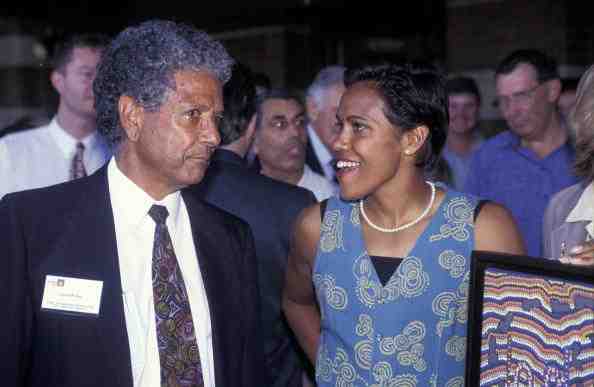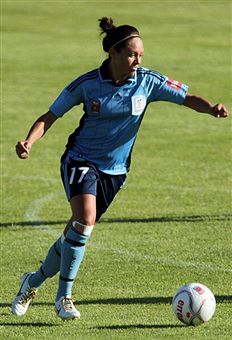By David Gold
April 6 – The Australian Football Federation (FFA) has launched an initiative designed to encourage more indigenous Australians to take up the sport.
The FFA chief executive Ben Buckley unveiled the launch of the Indigenous Football Development Strategy and outlined a vision aimed at encouraging more indigenous Australians to play the game, get involved in coaching, refereeing or administration.
“On behalf of the Board and Management of FFA, I am delighted to present the first ever Indigenous Football Development Strategy; Football Dreaming,” said Buckley.
“This strategy aims to build on the successful initiatives of recent years, including the staging of two Indigenous Football Festivals as well as the delivery of…school-based, education focused programs.
“As stated in the National Game Development Strategy, FFA strives to ensure that football is accessible and enjoyable for all Australians.
“A key focus of this commitment is to work with the football community on supporting associations and clubs to be able to cater for Indigenous Australians to participate in football.”
Supported by ambassadors Warren Mundine, a former national President of the Australian Labor Party, and John Moriarty (pictured below, left – the first indigenous football player to be selected for an Australian team, now an artist and Government advisor), football also hopes to appeal to indigenous Australians interested in sports such as Australian Rules Football (AFL) and rugby league, who have a number of indigenous players among their ranks.

Some of the country’s most famous sports people have been indigenous Australians, among them Cathy Freeman (pictured above, right), who won 400 metres gold at the Sydney 2000 Olympics.
In a country where football struggles to compete on the same playing field as rugby and AFL, attracting indigenous people is key to future development.
The Indigenous Football Development Strategy’s key areas of priority are to maximise the opportunities available to the indigenous population, to identify and develop players and use the game to impact positively on social issues such as education and health.
Indigenous Football Festivals are planned to help spur the initiative, as well as participation programmes underlining the importance of work and education.
The FFA is also to work with FIFA to organise grassroots coaching courses and to identify those who can help develop the game in local communities.
It is a key part of the FFA’s general strategy aimed at increasing the level of football in Australia and developing the game at grass roots level, as well as bringing through more home grown players.
“I’m very excited,” said women’s football star Kyah Simon (pictured top right), the first indigenous Australian to score at a World Cup where she scored both goals against Norway last year in Germany.
“It’s definitely been a long time coming, but it’s great to see it finally getting in motion and things happening.
“It’s exciting for me being a current indigenous national team member to see that there is a strategy in place to get more indigenous kids involved at a younger age and then hopefully develop into something more as they get older.”
Contact the writer of this story at zib.l1745339886labto1745339886ofdlr1745339886owedi1745339886sni@d1745339886log.d1745339886ivad1745339886

